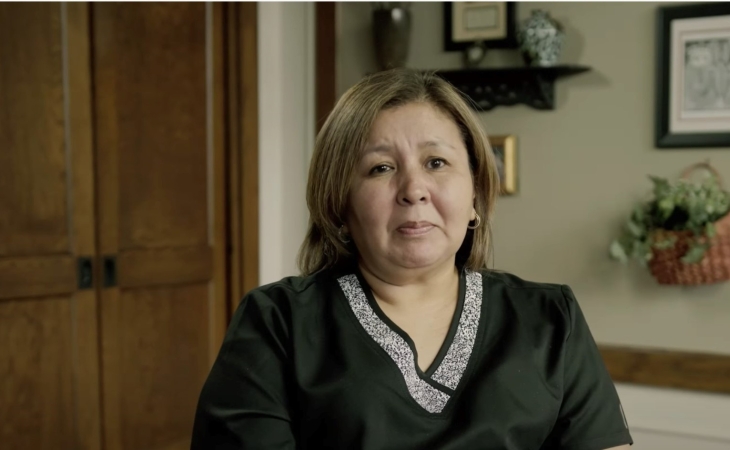Illinois might be one of the most liberal states in the country now, but in 1977 the state legislature had the good sense to pass a medical conscience law protecting healthcare workers from being forced to participate in objectionable procedures that violate their conscience. Forty-four years later, a pro-life nurse named Sandra Rojas is grateful it did.
Rojas, a pediatric nurse at the Winnebago County Health Department for 18 years, was told by her government employer in 2015 that she would have to cross-train to perform other medical services, including assisting with abortions. When she objected based on her religious convictions, the county at first accommodated her for a few weeks while other nurses performed the objectionable tasks, but it ultimately refused to continue accommodating her and offered her a non-nursing job as a food inspector, which she refused.
She then resigned and sued the county, with help from attorneys with Alliance Defending Freedom (ADF).
In October 2021, an Illinois state court ruled in Rojas’ favor, finding that the county could have continued to accommodate her objections beyond its initial attempts to do so.
“[Rojas] had a right to have her objections of conscience respected; the Health Department had the right to run its clinic and provide the services it was obligated to provide,” wrote Circuit Judge Eugene G. Doherty. “As discussed above, the conflict here was not unavoidable; both goals could have been achieved.
“This isn’t a matter of the Health Department not trying to accommodate Plaintiff; it actually did accommodate her, successfully, for three weeks. The Court has concluded that the Health Department could have reasonably accommodated [Rojas’] objections without removing her from her job.”
At the time, Rojas was awarded a statutory fixed amount of $2,500 plus an award of attorneys’ fees to be determined. On February 17, 2022, the court determined those attorneys’ fees to be $370,000.
ADF celebrated the victory in a press release.
“Medical professionals should never be forced to engage in or promote activities that violate their beliefs or convictions,” said ADF Senior Counsel Kevin Theriot. “Sandra served as a nurse according to her conscience and religion—a right for medical providers that is protected under Illinois and federal law. The court’s fee award sends a clear message that health care workers are free to practice medicine in a manner consistent with their conscience and religious beliefs, and there will be a steep penalty if the government fails to respect that legally protected freedom.”
Attorney Noel Sterett of the law firm of Dalton & Tomich served as co-counsel for Rojas.
“Health care professionals should not be required to violate their conscience to keep their jobs,” said Sterett. “We hope the outcome of this case will encourage other public and private health care employers to respect their employees’ rights of conscience.”
Because the judge decided the case under the Illinois Health Care Right of Conscience Act, he felt it was unnecessary to consider her similar claims under the Illinois Religious Freedom Restoration Act, which is patterned after the 1993 federal statute protecting against government action that substantially burdens an individual’s free exercise of religion.
Healthcare workers at facilities receiving federal funds are also protected under a variety of federal laws enforced by the U.S. Department of Health and Human Services (HHS).
Pro-life healthcare workers should make the effort to understand their rights under the various state and federal conscience laws in effect where they live. Nurse Rojas’ successful example of vindicating her legal rights should serve as an encouragement in that regard.
Photo from ADF.






